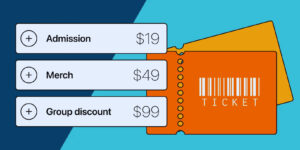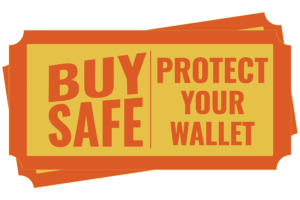Introduction:
In today’s digital age, buying and selling event tickets has never been easier. Whether you’re trying to attend the hottest concert or a highly anticipated sports event, tickets can be bought at the click of a button.
However, with the convenience of online ticket sales comes the complexities of ticket resale laws, which vary depending on the location and the nature of the event. Understanding ticket resale laws is crucial for both buyers and sellers to avoid penalties and legal consequences.
This guide provides an in-depth look into the legality of ticket resale, common misconceptions, and how to navigate these regulations safely.
What is Ticket Resale?
Ticket resale, also known as ticket scalping, involves selling event tickets after they have already been purchased from the primary seller. This process can take place in person or through various online platforms such as StubHub, SeatGeek, or even social media.
Many ticket resellers aim to make a profit by selling the tickets at a higher price than they were originally purchased for, which is where legal complications can arise.
Why are Ticket Resale Laws Important?
Ticket resale laws are in place to protect consumers from fraudulent activities and price gouging. Without regulations, scalpers could exploit high demand for events, selling tickets at exorbitant prices or selling counterfeit tickets altogether.
These laws aim to balance the rights of both the ticket buyer and the seller, ensuring a fair marketplace where consumers can purchase tickets at reasonable rates without being scammed.
A Brief History of Ticket Resale Laws
Ticket resale has been a contentious issue for decades. Initially, laws were designed to prevent scalpers from reselling tickets at inflated prices. Early forms of legislation primarily targeted street sales of tickets outside venues.
However, with the rise of the internet and ticket resale platforms, these laws have evolved significantly. Modern regulations now account for online sales, the use of bots, and interstate commerce, making the legal landscape more complex.
The Legal Landscape of Ticket Resale
Ticket resale laws vary by country, state, and even city. In some areas, it is illegal to resell tickets at a higher price than the face value, while other regions have more relaxed regulations. Here’s an overview of how ticket resale laws apply in different regions:
1. United States
In the United States, ticket resale laws vary by state. Some states have specific restrictions, while others have minimal or no regulations. However, the federal government has also implemented laws to address issues such as ticket bots.
Federal Law: The federal BOTS Act (Better Online Ticket Sales Act) was passed in 2016 to prevent the use of automated bots to purchase tickets in bulk. This law makes it illegal for individuals to use these bots to bypass ticket purchasing limits and resell tickets at a higher price.
State Laws: Each state has its own approach to regulating ticket resale. For example:
New York: In New York, ticket scalping is legal, but resellers must obtain a license. There are caps on the amount by which tickets can be marked up.
California: Ticket resale is legal as long as the ticket isn’t sold at the venue’s premises without permission.
Florida: In Florida, it’s legal to resell tickets, but sellers cannot charge more than 25% above the face value unless they are registered brokers.
2. Canada
In Canada, ticket resale laws are also province-specific. Some provinces have strict anti-scalping laws, while others have looser regulations.
Ontario: Ontario introduced the Ticket Sales Act in 2018, which prohibits the resale of tickets at prices above their original face value. It also prohibits the use of bots to buy tickets in bulk.
British Columbia: British Columbia allows ticket resale but implemented regulations to ensure transparency. Such as requiring resellers to disclose the face value of tickets.
3. United Kingdom
In the UK, ticket resale is generally legal, but there are restrictions to prevent unfair practices.
Consumer Rights Act of 2015: This law requires resellers to provide clear information about the tickets, including the face value and the seating location. Reselling tickets for events such as football matches is prohibited unless through an authorized platform.
Viagogo Ruling: In recent years, secondary ticketing platform Viagogo has faced significant legal challenges. UK regulators have cracked down on the site for failing to provide adequate information about tickets and for selling tickets that were not valid for entry.
4. European Union
The European Union generally allows ticket resale, but member countries can impose their own regulations. For example, in Germany, resale is heavily restricted, especially for high-demand events such as football matches. While other countries like France have more relaxed laws, provided that transparency and consumer protection rules are followed.
The Impact of Bots and Automation on Ticket Resale
One of the biggest challenges in the ticket resale market is the use of automated bots. Bots allow scalpers to purchase large quantities of tickets in mere seconds, often leaving regular consumers unable to buy tickets at face value. These tickets are then resold at highly inflated prices on secondary markets.
Laws like the BOTS Act in the U.S. and similar regulations in other countries aim to combat this problem, but enforcement remains difficult. For buyers, it’s crucial to purchase from reputable sources to avoid paying excessive prices for tickets. It may have been obtained through unscrupulous means.
Key Considerations for Ticket Buyers
As a buyer, navigating the ticket resale market can be daunting. Here are some tips to ensure that you’re purchasing tickets legally and securely:
Use Reputable Platforms: Always use established and trustworthy platforms like Ticketmaster, StubHub, or SeatGeek. These platforms often have buyer protection policies that can safeguard against fraud.
Check the Face Value: Make sure you know the original price of the ticket. If a reseller is charging excessively more than the face value. You may be dealing with price gouging, which could be illegal depending on your location.
Be Aware of Fake Tickets: One of the biggest risks in the resale market is counterfeit tickets. Scammers can create fake tickets that look real but won’t be accepted at the venue. Always verify the legitimacy of the ticket before purchase.
Know the Refund Policy: Many secondary ticket platforms offer a guarantee or refund if the ticket is invalid or if the event is canceled. Ensure that you understand the terms and conditions before making a purchase.
Key Considerations for Ticket Sellers
If you’re planning to resell tickets, understanding the legal landscape is essential to avoid penalties:
Know the Local Laws: Before selling tickets, make sure you understand the resale laws in your region. Selling tickets above face value may be illegal in certain states or countries, and failing to comply can result in fines.
Register as a Broker: In many places, you’ll need to register as a licensed ticket broker if you plan to resell tickets regularly. This can protect you from legal trouble and establish you as a reputable seller.
Disclose Important Information: Always disclose essential details about the ticket, such as the face value, seat location, and any restrictions on the ticket’s use. This transparency is required by law in many regions and helps build trust with buyers.
The Future of Ticket Resale Laws
As technology continues to evolve, ticket resale laws will likely continue to change. The rise of digital tickets, blockchain technology, and new regulations around online marketplaces will shape the future of how tickets are bought and sold.
For instance, some companies are experimenting with blockchain to create a more transparent and secure ticketing system. Blockchain-based tickets are unique and nearly impossible to counterfeit. Which could help reduce the prevalence of fake tickets in the resale market.
Moreover, governments around the world are increasingly aware of the need to regulate the secondary ticket market to protect consumers from unfair practices, so we can expect more stringent rules in the future.
Conclusion
Understanding ticket resale laws is crucial for both buyers and sellers. With a patchwork of regulations across different countries, states, and provinces, it’s essential to know the specific laws that apply in your region.
By staying informed and using reputable platforms, buyers can avoid scams and overpricing, while sellers can engage in lawful practices that ensure a fair marketplace for all.
As the ticket resale market continues to grow and evolve, keeping up with these laws will be essential for anyone involved in the process. Whether you’re attending a concert, sports game, or theater performance. Being aware of the legal landscape ensures a smoother and safer ticket-buying experience.








